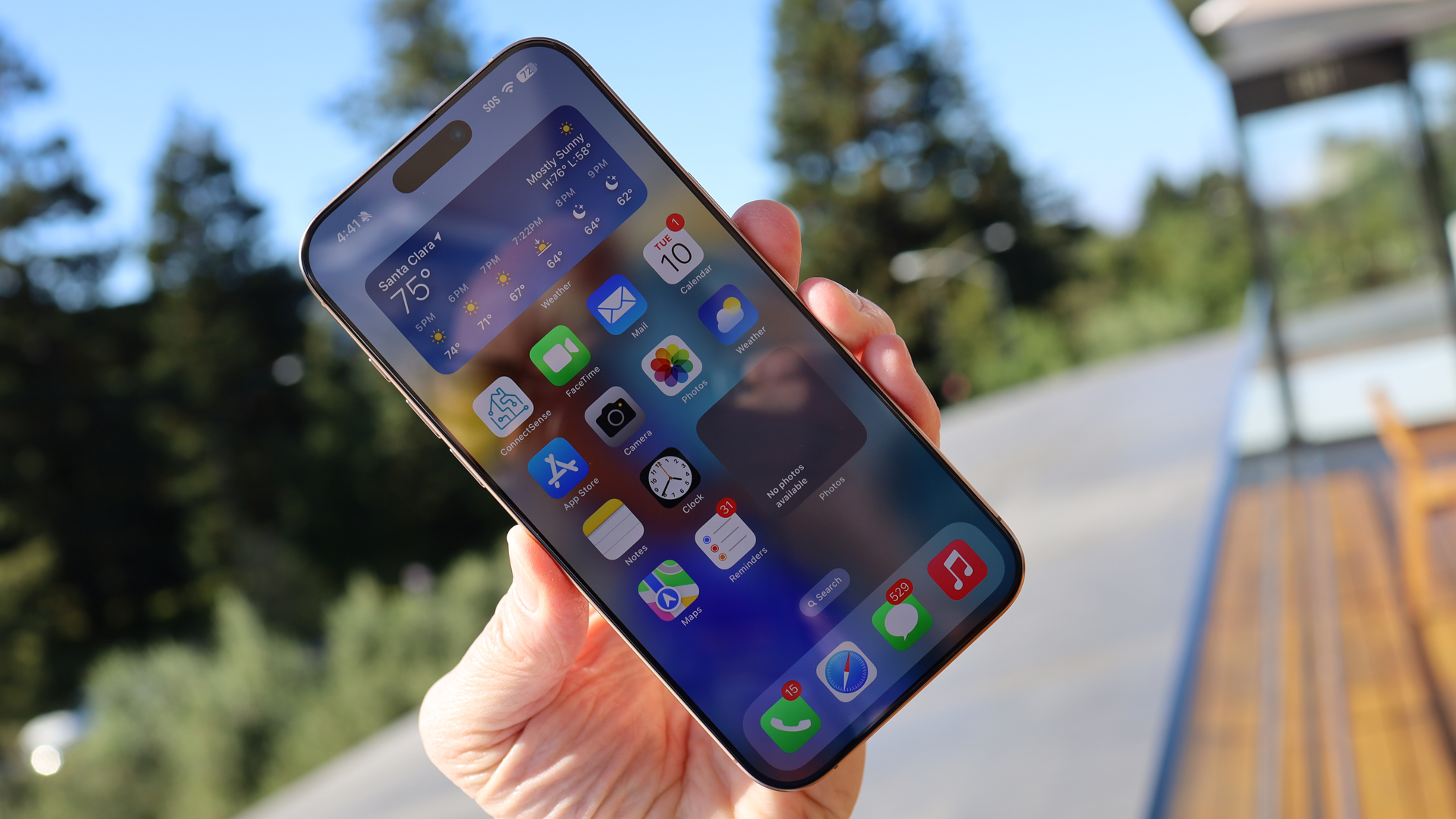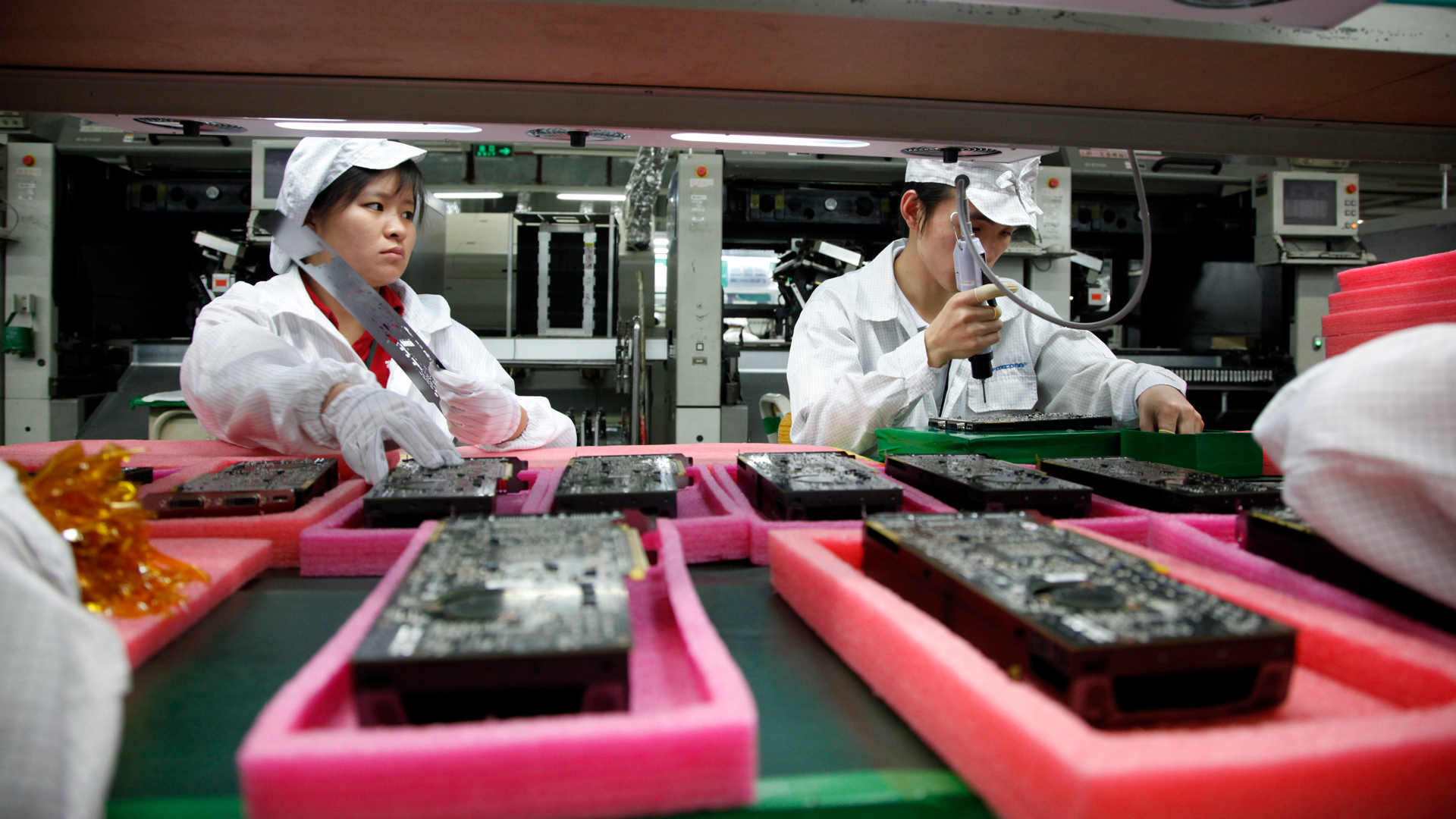Tariffs might not raise iPhone prices right away, but building the iPhone in the US almost certainly will
The real price threat

We're in the middle of a fast-developing global trade war sparked by punitive tariffs imposed by US President Donald Trump, and the casualties appear to be some of our favorite tech gadgets, including the beloved iPhone.
Prices for the iPhone 16 are unlikely to rise in the short term, though. Instead, the biggest threat to Apple holding the line on current and future iPhone prices might be the calamitous idea of Apple attempting to build its handsets in the US.
First, let's look at the question of the short-term impact of tariffs on iPhone prices. Right now, Apple builds roughly 85% of its iPhones in China, a country on which Trump has now imposed a 104% tariff. China reciprocated with 84% tariffs on imported US goods.
I've seen some analysts predicting that tariffs could cause iPhone prices to double, putting the latest best iPhones at over $2,000. However, I don't see that happening.
Hold the line
In the short term, at least, Apple won't mess with iPhone 16 prices; Apple is too invested in moving built units into consumers' hands. It's true that Apple works on a Just-in-Time (JIT) inventory model (build only what's needed/sold), so that it does not have millions of iPhones lying around in Apple Stores and supply centers, but it does have some stocks.
And for all we know, Apple may have ramped up production and delivery to the US in anticipation of these tariffs (Nintendo may have done just that with its new Switch 2).
There are so many pitfalls to bringing all manufacturing of iPhones to the US, including higher costs, more expensive labor, and the role of full automation, which is counter to the idea of adding more jobs.
Tim Bajarin
I think it's fair to worry that iPhone 17 prices could be higher as a result of the tariffs, but again, I think Apple will do what it can to hold the line, and part of that has to do with its services (Apple News, Apple TV+. iCloud, Fitness+, Apple Music, etc).
If you look at Apple earnings, its fastest-growing segment, and, aside from iPhones, its most reliable source of revenue, is services. You sell services by selling hardware, and Apple won't sell more hardware if it significantly raises iPhone prices in response to these tariffs.
There is, as I see it, though, a far greater threat to iPhone pricing, and it is related to tariffs. Trump enacted these tariffs in part to push American companies to bring manufacturing back to the US. He even believes that the US has the labor, workforce, and resources to build the iPhone in the US.
He's wrong.

Let's imagine, though, that he convinces or coerces Apple into a full-scale upheaval and transfer of iPhone production from China, India, and other countries to the US. How would that work? And what might that mean for the price of your next iPhone?
First, you need to understand that, even if the iPhone were assembled in the US, virtually all its parts would be manufactured elsewhere. A couple of years ago, ArcGIS StoryMaps produced a fascinating infographic that showed the manufacturing origins of each iPhone component. Here are some examples:
- Battery: South Korea (Samsung)
- Camera: Japan (Sony)
- Glass: Australia (Corning)
- Touchscreen: Greece (Boradcom)
- Audio chip: Singapore (Cirrus Logic)
- Gyroscope: Switzerland (STMicroelectronics)
Virtually every nation has now had a baseline 10% US tariff imposed upon it – and some countries, like Japan, face much higher ones. Components shipped directly to a US-based Apple iPhone plant could cost more than the same components sent to China based on these tariffs, unless they're exempted from tariffs in return for Apple bringing its manufacturing operations to the US. They certainly won't be less expensive.
I spoke to longtime Apple Watcher and analyst Creative Strategies Chairman Tim Bajarin about this over email, and he told me, "The idea of making iPhones in the US is a stretch. Apple’s components alone come from all over the world and then need to be assembled in the most cost-effective way. This is why the US lost manufacturing in the 1960s to countries like Japan and eventually China."
Most electronics are like this, built piecemeal around the world and assembled centrally in the most cost-efficient place.
Bajarin adds, "There are so many pitfalls to bringing all manufacturing of iPhones to the US, including higher costs, more expensive labor, and the role of full automation, which is counter to the idea of adding more jobs."
The majority of iPhones are still assembled by Foxconn in Shenzen, China, where employees make a little less than (in US dollars) $3 an hour. US workers would expect to make at least the minimum wage ($7.25 federally); and if factory workers are unionized, they would likely earn more and expect benefits.
It's hard to imagine how building an iPhone in the US, with US employees making fair wages, would not be more expensive than building it in India or China.
Apple's plan
Apple has not spoken directly about the tariffs or how it will respond to them (I've asked Apple for comment), but it has committed to investing $500 billion in constructing facilities and hiring employees in the US. Notably, none of that work is for factories that can build iPhones. Instead, the facilities will build servers that support Apple's big Apple Intelligence push and other AI cloud computing efforts.
Ultimately, the shorter-term existential threat to the costs of our iPhones is not these tariffs: it's the idea that anyone should build them in the US. It's a bad plan built upon false premises. I think Apple knows this, which is why it's not happening and, for now at least, why your iPhone prices might hold steady.
Will you pay more for your next iPhone?April 9, 2025
If the tariffs lock in and last through this year, that might change. Apple could do its best to hold the line, and even take a loss on the iPhone 17 in order to continue growing its user base and services audience. That's not a sustainable long-term plan, though, and at some point, I suspect even Apple will say, "We have to pass some of this pain along."
As for consumers, they, at least anecdotally, seem somewhat willing to pay a little more for iPhones. In a poll on X, I asked if people would pay more for their next iPhone. A little more than half predictably answered 'No', but almost 35% checked 'It depends how much.' iPhone fans will endure some pocketbook pain to get their favorite phone, as long as it's not too much.
You might also like
Get daily insight, inspiration and deals in your inbox
Sign up for breaking news, reviews, opinion, top tech deals, and more.

A 38-year industry veteran and award-winning journalist, Lance has covered technology since PCs were the size of suitcases and “on line” meant “waiting.” He’s a former Lifewire Editor-in-Chief, Mashable Editor-in-Chief, and, before that, Editor in Chief of PCMag.com and Senior Vice President of Content for Ziff Davis, Inc. He also wrote a popular, weekly tech column for Medium called The Upgrade.
Lance Ulanoff makes frequent appearances on national, international, and local news programs including Live with Kelly and Mark, the Today Show, Good Morning America, CNBC, CNN, and the BBC.
You must confirm your public display name before commenting
Please logout and then login again, you will then be prompted to enter your display name.